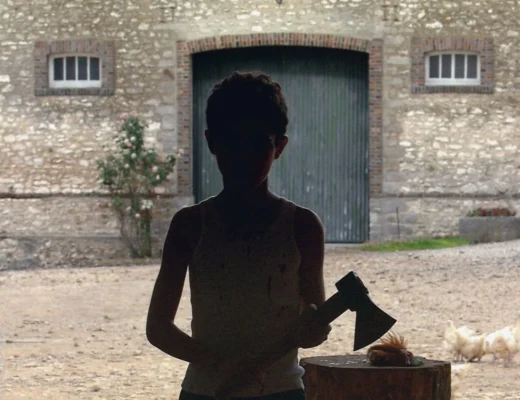Set toward the tail end of the Cultural Revolution, Bangzi Melody presents the life of a small village as its inhabitants go about the tasks of meeting peanut oil quotas; preparing a classical opera for their Chinese New Year pageant (attended by regional Party cadres); and wrestling with the highly inconveniencing madness of their former community leader, Wang Kuisheng (newcomer Zhibing Li), and the circumstances that led to his deterioration. Zheng Dasheng’s latest situates itself somewhere between the Fifth and Sixth Generations of Chinese cinema, but seemingly operates in a world apart from that with which either of these movements have generally been associated. Zheng prefers to draw on ideas and formal sensibilities that date from Chinese revolutionary cinema, and from Soviet cinema, as well as from concepts that originate in classical Chinese theater. Using these touchstones, Bangzi Melody charts the story of a town’s fidelity to its nation’s abstract ideological pronouncements, as pitted against squabbles and intrigues that bubble-up from suppressed desires for the prime farmland that once existed under Wang.
All this Zheng uses as a basis to comment, reflexively, on the thoroughgoing performative nature of not just social, but personal life during this period. And it’s in the characterization of Wang that this is most acutely achieved: we witness the former leader’s loss of self after he is pressured by the town to denounce his daughter as a thief — after she chokes to death on peanuts taken from the town’s crop — in order to ensure a regional grain subsidy. The theatrical import of this is clear for Zheng: Wang’s inability to meaningfully engage in the theatrics required by the town, and the country more broadly, during the Cultural Revolution guarantee his eventual exile. That Zheng shoots his film in black and white, with very intentional shifts to color, opens Bangzi Melody up to the complexities of a moment in Chinese history that, for many, is representative of a repressed trauma. Zheng reveals, at once, the lies that were told to meet demands, as well as the truths that got buried and ate away at those with souls un-calloused enough to survive the national delirium.
Published as part of CineCina Film Festival 2019.







